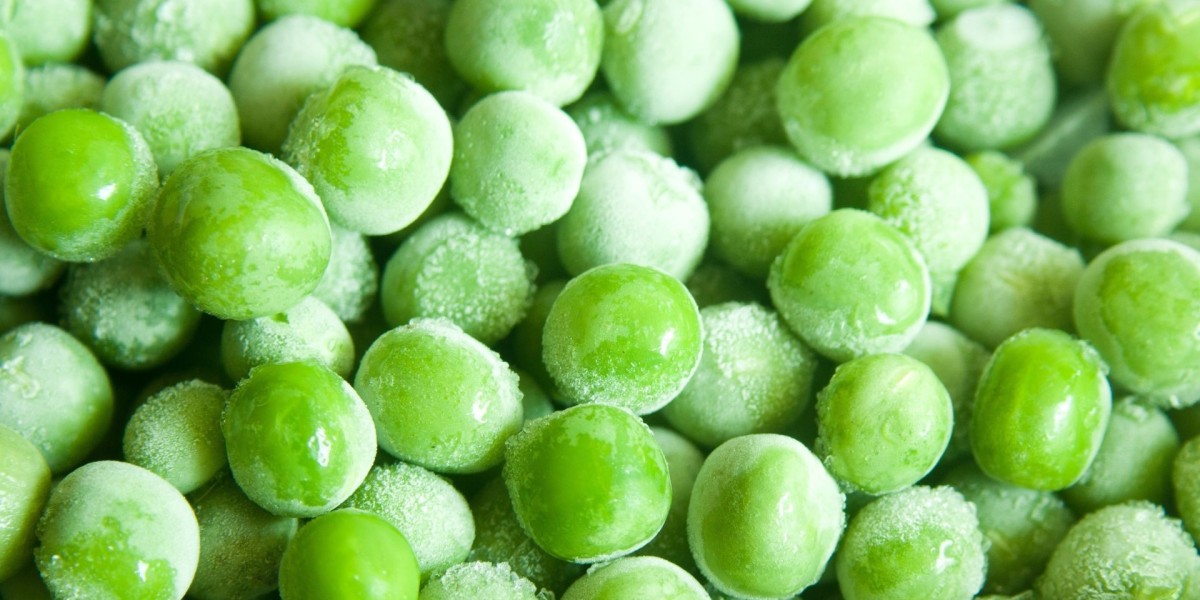Urban Lifestyles and Consumer Awareness Fuel the Rising Popularity of Frozen Vegetables in Saudi Arabia
According to Renub Research, the Saudi Arabia Frozen Vegetables Market is experiencing robust growth as changing dietary preferences, increasing urbanization, and greater access to cold storage facilities reshape consumer behavior. The market is poised to benefit from shifting lifestyles that favor convenience, as well as heightened awareness regarding food nutrition and safety.
? Request a Free Sample Report:
? https://www.renub.com/request-sample-page.php?gturl=saudi-arabia-frozen-vegetables-market-p.php
Convenience Meets Nutrition: The Modern Consumer’s Choice
As Saudi Arabia’s population becomes increasingly urban and time-strapped, demand for quick, easy-to-cook, and nutritious food options continues to rise. Frozen vegetables—offering long shelf life without compromising on vitamins and minerals—are becoming a preferred choice in both households and the foodservice sector.
Unlike traditional perceptions of frozen food as inferior, today’s consumer recognizes the nutritional value, hygiene standards, and year-round availability of frozen vegetables. Advanced freezing technologies now retain taste, texture, and nutrients better than ever, making frozen peas, carrots, spinach, and mixed vegetables kitchen staples in Saudi homes.
Growing Demand from HORECA Sector Spurs Market Expansion
The Hospitality, Restaurant, and Catering (HORECA) sector is playing a pivotal role in the expansion of the frozen vegetable market in Saudi Arabia. Hotels, restaurants, and institutional kitchens rely heavily on frozen vegetables for their ease of storage, consistency in quality, and minimal preparation time.
As tourism and hospitality see continued investments under Saudi Vision 2030, the demand for standardized, high-quality food products is expected to increase. Frozen vegetables meet these needs, offering chefs and food service providers both quality and cost efficiency.
Retail Transformation and Supermarket Chains Boost Consumer Reach
The rising number of modern grocery retail formats, such as hypermarkets and online grocery platforms, has significantly improved the availability and accessibility of frozen vegetables. Consumers can now find diverse frozen vegetable options from domestic and international brands in temperature-controlled aisles across the Kingdom.
The growth of e-commerce grocery platforms is also supporting the frozen vegetable market. With efficient delivery infrastructure and growing consumer trust in online grocery services, frozen vegetables are seeing a surge in digital orders, especially among younger, tech-savvy shoppers.
Government Initiatives Support Food Security and Cold Chain Infrastructure
Saudi Arabia is strategically investing in cold chain logistics, food preservation technologies, and agricultural sustainability, all of which directly benefit the frozen vegetable industry. The government’s focus on food security and reduced reliance on imported perishables aligns with the expansion of frozen foods, which help extend shelf life and reduce food waste.
Programs encouraging local cultivation and processing of vegetables are further expected to bring down prices and support domestic production of frozen vegetable products.
Technological Advancements and Packaging Innovation Propel the Market
The introduction of IQF (Individually Quick Frozen) technology and vacuum-sealed packaging methods has drastically improved the quality, hygiene, and appeal of frozen vegetables in Saudi Arabia. These technologies preserve flavor, appearance, and nutrition while extending the shelf life and preventing contamination.
Environmentally friendly and recyclable packaging materials are also becoming popular, in line with the country’s sustainability goals. Packaging transparency, labeling, and portion-controlled packs are making frozen vegetables more attractive to health-conscious consumers.
Market Segmentation: Broadening Product Preferences Across Consumer Groups
By Product Type:
Peas
Corn
Broccoli
Mixed Vegetables
Spinach
Others
Mixed vegetables remain a popular option due to their versatility in meal preparation, while spinach and broccoli are gaining popularity due to their perceived health benefits.
By Distribution Channel:
Supermarkets & Hypermarkets
Convenience Stores
Online Retailers
Institutional Buyers
Supermarkets and online platforms are emerging as dominant retail outlets for frozen vegetables, catering to both individual and institutional consumers.
Regional Insights: Urban Centers Dominate Demand
Urban cities such as Riyadh, Jeddah, and Dammam are the major demand centers for frozen vegetables, owing to high population density, fast-paced lifestyles, and better access to modern retail channels. In contrast, rural areas are slowly catching up as infrastructure improves and frozen foods become more mainstream.
Saudi Arabia’s evolving urban ecosystem provides a strong foundation for sustained market expansion, particularly in convenience-focused food categories such as frozen vegetables.
Competitive Landscape: Local and Global Players Intensify Market Activity
The Saudi Arabia Frozen Vegetables Market features a mix of domestic manufacturers, regional producers, and global giants. These companies compete on the basis of price, quality, innovation, and distribution network.
Strategic moves such as joint ventures with local distributors, new product launches, and private label expansion are helping companies strengthen their foothold in this rapidly growing market. Brand recognition, consistent supply, and cold storage capabilities remain the key differentiators.
Key Growth Drivers and Future Outlook
Several factors are expected to fuel the market’s momentum in the coming years:
Increased participation of women in the workforce
Rising health consciousness and demand for clean-label foods
Expanding expatriate population with diverse food preferences
Climate and supply chain challenges that favor frozen over fresh produce
Strong government focus on food sustainability and food safety
With these tailwinds, the Saudi Arabia Frozen Vegetables Market is well-positioned for continued growth, innovation, and investment opportunities.
? Download Free Sample Report:
? https://www.renub.com/request-sample-page.php?gturl=saudi-arabia-frozen-vegetables-market-p.php
About the Company
Renub Research is a Market Research and Consulting Company with more than 15 years of experience, especially in international Business-to-Business Research, Surveys, and Consulting. We provide a wide range of business research solutions that help companies make better business decisions.
We partner with clients across all sectors and regions to identify their highest-value opportunities, address their most critical challenges, and transform their businesses. Our wide clientele includes key players in Healthcare, Travel & Tourism, Food & Beverages, Power & Energy, Information Technology, Telecom & Internet, Chemicals, Logistics & Automotive, Consumer Goods & Retail, Building & Construction, and Agriculture.
Our core team comprises experienced professionals with graduate, postgraduate, and Ph.D. qualifications in Finance, Marketing, Human Resources, Bio-Technology, Medicine, Information Technology, Environmental Science, and more.
Media Contact
Company Name: Renub Research
Contact Person: Rajat Gupta, Marketing Manager
Phone No: +91-120-421-9822 (IND) | +1-478-202-3244 (USA)
Email: rajat@renub.com
? Explore Full Report:
? https://www.renub.com/saudi-arabia-frozen-vegetables-market-p.php

